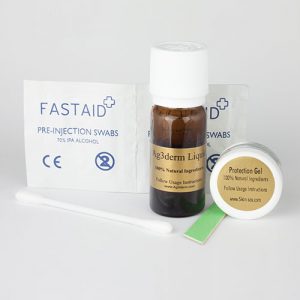Questions are often asked about the impact of race on the occurrence of keratosis. When considering this issue two factors need to be taken into consideration: the type of keratosis and the properties of the skin under consideration, in this case that which belongs to persons of African descent. There are four basic types of keratosis: actinic, seborrheic and hydrocarbon. Of the four, black people are the least likely to contract actinic keratosis. Actinic keratosis affects for the most part, people who are fair-skinned and who have suffered constant exposure to the sun, hence its other name, solar keratosis. It produces nasty looking thick, scaly or crusty patches of skin. Black person are likely to contract the hydrocarbon variety as this usually affects persons who are exposed to ‘polycyclic aromatic hydrocarbons’ (PAHs). Keratosis pilaris is an equal opportunity skin condition. It occurs when keratin build-up in the skin leads to pore blockage producing tiny reddish bumps on the skin. It is also hereditary. No-one is sure what causes seborrheic keratosis, which results in wart-like lesions on the skin.
Black skin has proven very resistant to most skin conditions for a variety of reasons. It is thicker, for one and because it contains a greater amount of melanin (a substance that gives skin and hair its color) there is a greater level of pigmentation accompanied by low elasticity. However, while black skin is naturally resistant, it is not immune and it must be remembered that over exposure to the sun will cause irritation and can lead to the evolution of keratosis. The fact is, constant and persistent exposure to the ultra violet rays without the requisite protection (hats, sunglasses, long pants, blouses with long sleeves) will prompt the over production of melanin in an attempt to provide protection. When melanin is concentrated in one area of the skin, blemishes will appear as a result.
There are, of course, treatment options. However persons with darker skin need to be careful when selecting a treatment. Whether choosing a natural remedy or chemical solution, there are dangers. Persons of African descent are not advised to use hydroquinone, a popular treatment because it contains high levels of melanin. Lemon juice is a popular natural remedy but it must be remembered that it is natural bleach and using it can lead to lightening of the skin which can result in an uneven skin tone.
So do persons with darker skin have an advantage over others with fairer skin? Yes and no. Having a higher level of pigmentation does provide a certain amount of protection but it does not provide infallibility and as much as anyone else they need to be vigilant with regards to skin care and protection.

